INTERNACIONAL
Reporter’s Notebook: Alcohol, not coffee

Republicans control the House and Senate.
But characterizing it as the «Republican Congress» doesn’t do justice to the present circumstances.
This truly is «President Trump’s Congress.»
The president’s relationship with Republican lawmakers is light-years away from the fraught, shotgun marriage of 2017 after he unexpectedly captured the White House. Republicans on Capitol Hill didn’t know what to do with him.
USER’S MANUAL TO WALTZ’S NSA EXIT AND ITS REVERBERATION ON CAPITOL HILL
Former national security advisor Mike Waltz (Saul Loeb/Pool/AFP via Getty Images)
Congressional Republicans «didn’t read the tweets.» They snickered behind his back. They chortled at what they believed were untenable ideas emanating from the White House.
And Trump also didn’t know what to do with congressional Republicans, either.
He and then-House Speaker Paul Ryan, R-Wis., formed the Odd Couple of politics.
But Trump’s relationship with then-Senate Majority Leader Mitch McConnell, R-Ky., was even worse.
So they focused on areas of agreement. Congressional Republicans viewed the Trump presidency as a means to an end. They saw an opportunity to pass some of their legislative priorities.
REPORTER’S NOTEBOOK: WHERE WE STAND WITH TRUMP’S ‘BIG, BEAUTIFUL BILL’
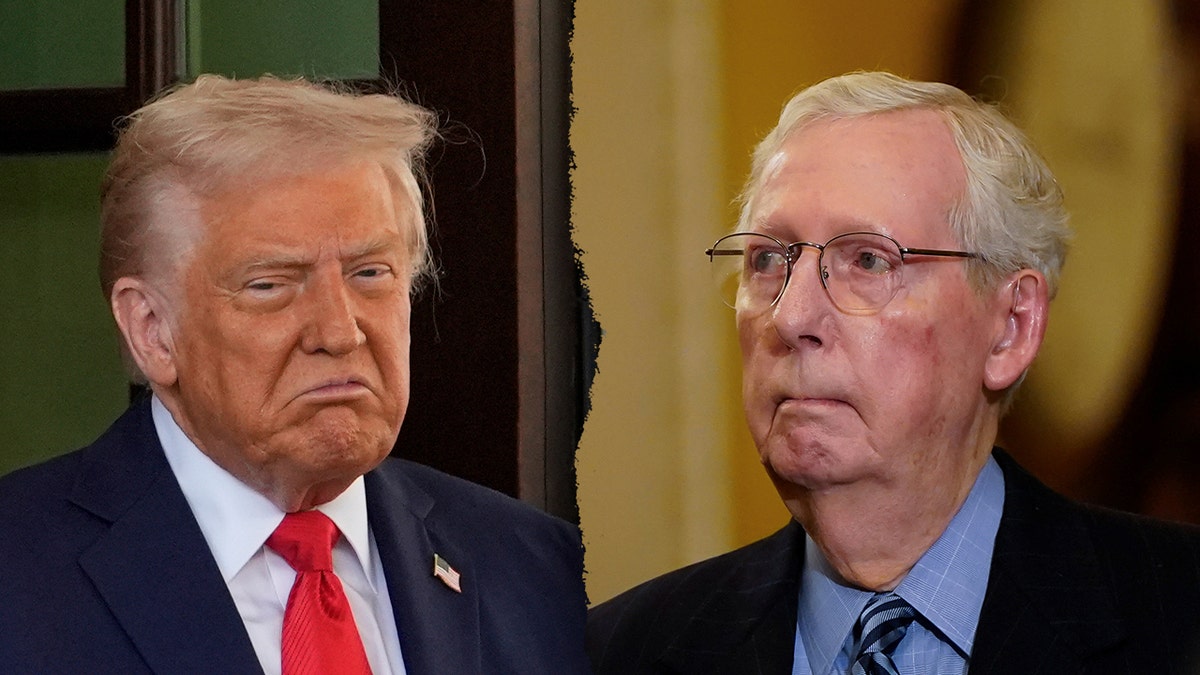
President Donald Trump and outgoing Sen. Mitch McConnell have a contentious relationship. (AP Photo; Reuters)
McConnell muscled three of President Trump’s Supreme Court nominees to confirmation, altering the contours of the high court for a generation. Ryan bored deeply into his area of expertise: tax policy. By Christmas 2017, the Republican-led Congress approved the vaunted «Trump tax cuts.»
But they stumbled early on repealing and replacing ObamaCare.
«I will not sugarcoat this. This is a disappointing day for us,» said Ryan when he had to yank an initial plan to end ObamaCare off the floor in the spring of 2017.
The House finally approved a revamped repeal and replace package more than a month later. But the late Sen. John McCain, R-Ariz., torpedoed the effort with his vote against the plan later that summer.
But things are different this time around between Trump and congressional Republicans.
«He’s still the biggest dog in the pound,» said Rep. Tim Burchett, R-Tenn.
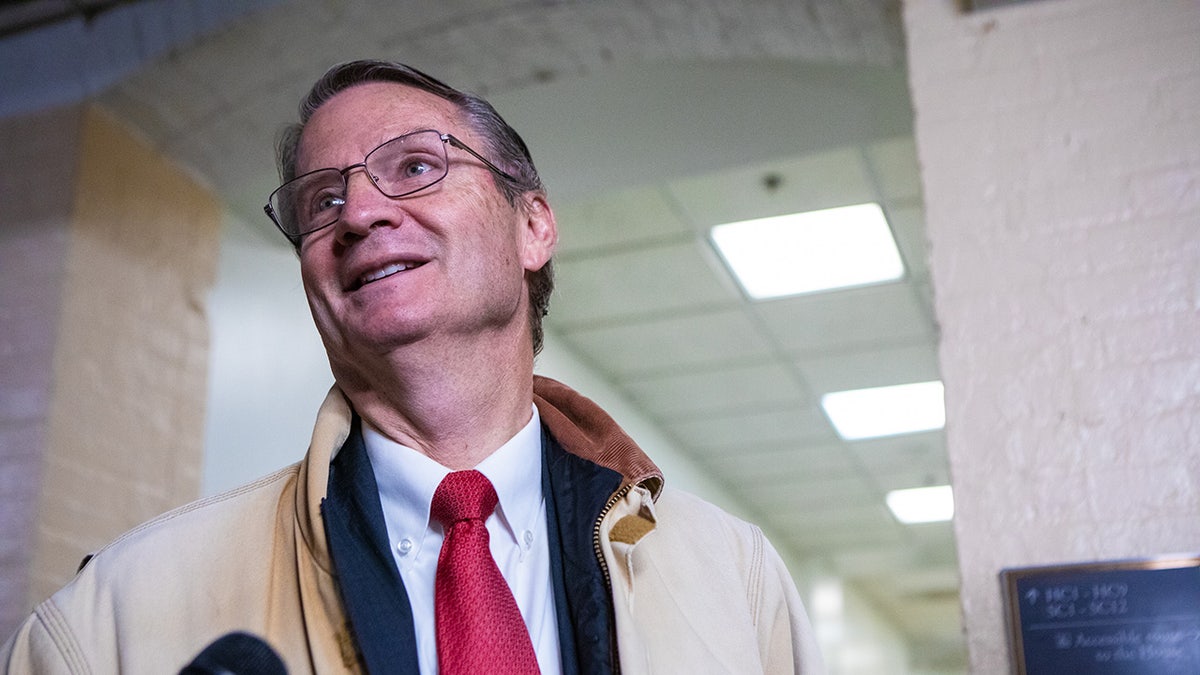
Rep. Tim Burchett speaks to reporters upon arrival at a House Republican Conference meeting on Nov. 14, 2023, in Washington. (Anna Rose Layden/Getty Images)
So now congressional Republicans are teaming with the president to pass his «big, beautiful bill.»
«We are on track to pass the bill out of the House – as we’ve said from the very beginning – and get it over to the next stage by Memorial Day,» said House Speaker Mike Johnson, R-La.
But that doesn’t mean there isn’t GOP skepticism.
«Seems like that’s a pretty tight timeframe,» said Sen. Thom Tillis, R-N.C., of Johnson’s aspirations. «I’m not aware of any consensus, even within one of the bodies. Let alone a bicameral consensus.»
«A July 4 timeframe will be optimistic,» said Sen. James Lankford, R-Okla. «If we can get this done by the end of July, I would count that as a win.»
But deep divides cleave Republicans.
TRUMP NOMINATES WALTZ FOR HIGH-LEVEL POST AFTER OUSTING HIM AS NATIONAL SECURITY ADVISOR
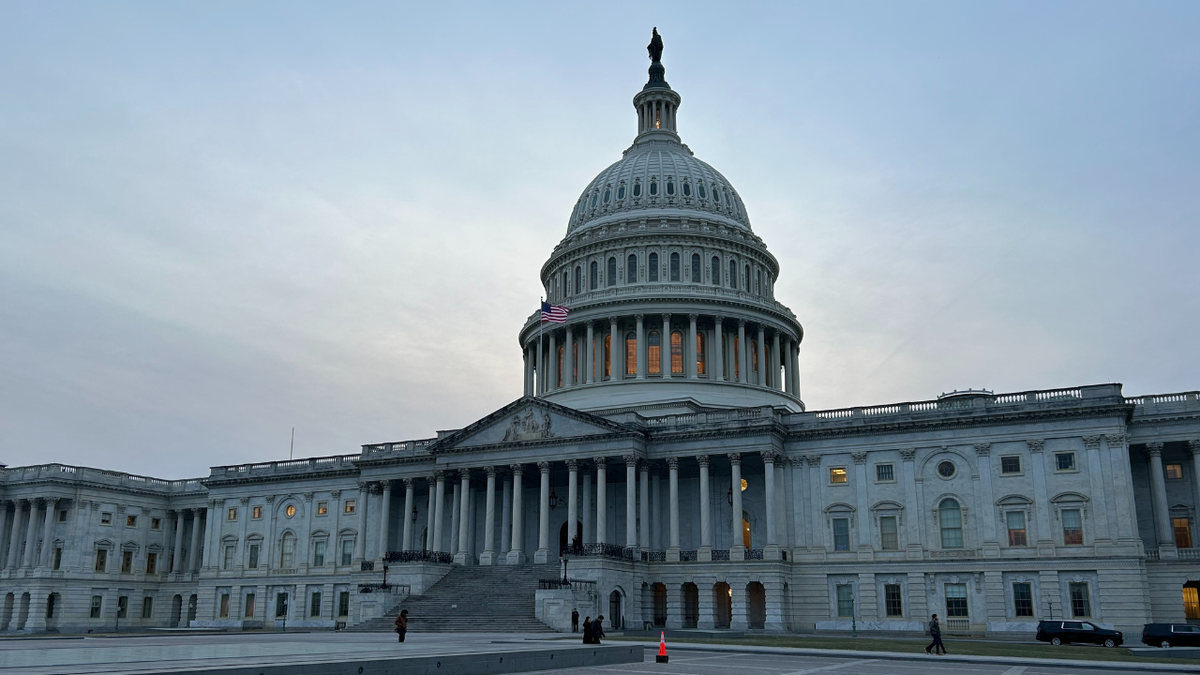
U.S. Capitol at sunset on Jan. 30, 2025. (Fox News Digital)
«I don’t think we’re on the same page even inside the House, much less in the House and the Senate,» said Rep. Chip Roy, R-Texas.
Roy questioned what was so magical about finishing the bill by «Memorial Day» or «Independence Day.»
«Christmas? Easter? Memorial Day? July 4th? Does that have anything to do with policy? Hell no. It has to do with what? Jet fumes! People leaving town, right?» argued Roy. «Every single policy, as long as I can remember, is based on that more than it is on policy.»
But some Republicans aren’t convinced Congress is moving fast enough.
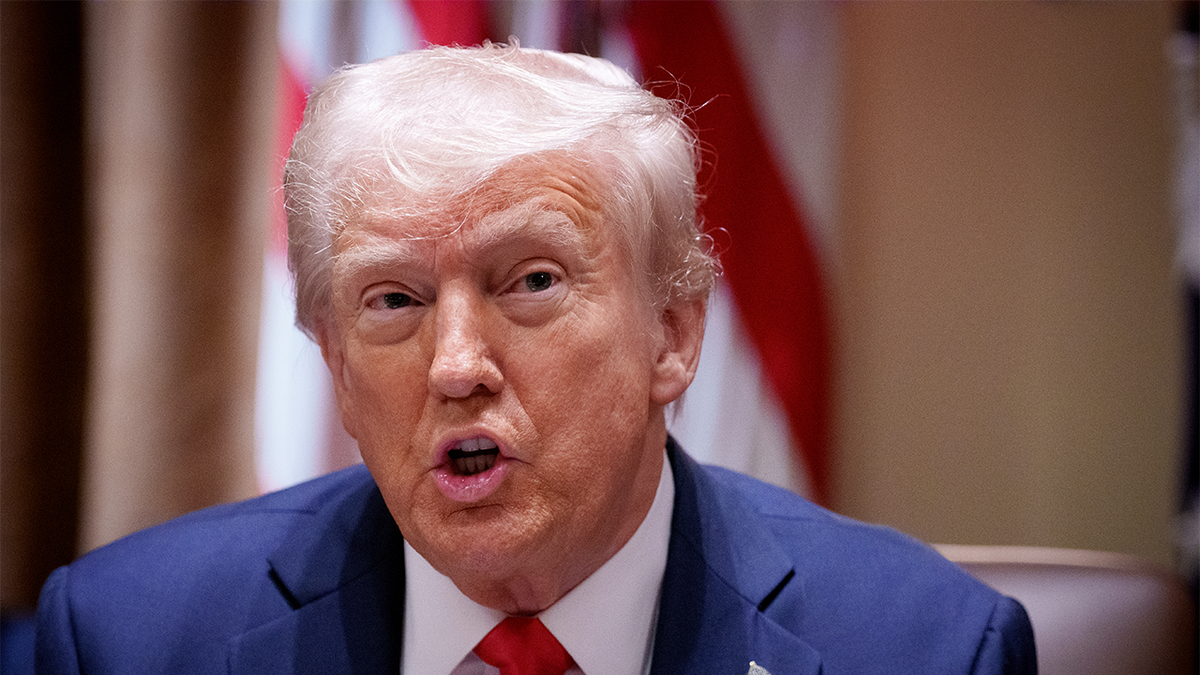
President Donald Trump speaks during a Cabinet meeting at the White House on Feb. 26, 2025. (Andrew Harnik/Getty Images)
Rep. Warren Davidson, R-Ohio, relayed what he heard from constituents in Ohio.
«People were like, «What’s taking so long?’ They don’t think it’s rushed by any means. They’re like, ‘Where’s the bill?’» said Davidson. «If we don’t get this by mid-June, I think people back home are going to go ‘What are you guys doing?’»
This is why Democrats say Republicans are fretting privately.
«They’re clearly conflicted about Medicaid cuts,» said Sen. Tim Kaine, D-Va. «They’re conflicted about raising the debt ceiling just with Republican votes. They’ve traditionally wanted to get Democratic votes for that and not do it all on their own. But if they do it in the reconciliation bill, they’re going to have to do it all on their own.»
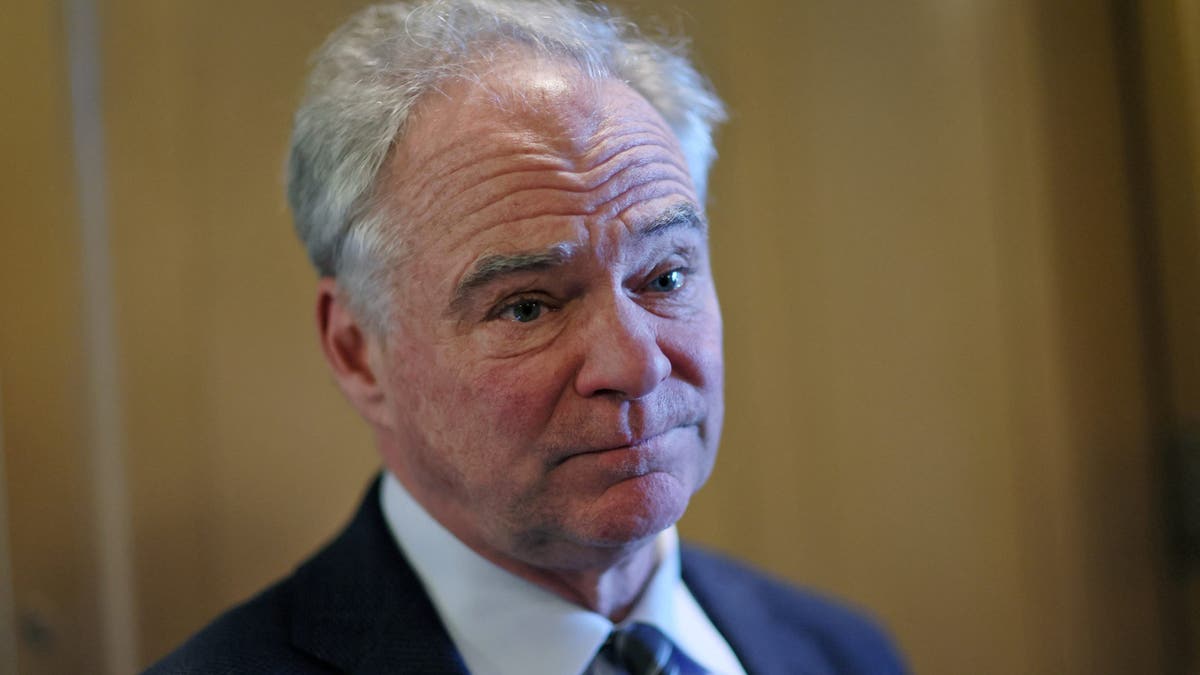
And Republicans are starting to get nervous about the success or failure of the bill. The president – and most congressional Republicans – have banked their entire political calculus on this gambit.
«It’s a job for alcohol. Not coffee,» said Sen. John Kennedy, R-La., noting the anxiety now permeating congressional Republicans. «Some of them would make a Valium nervous.»
Kennedy contends he’s not worrying. But says that even after another two months of hand-wringing, the Senate «won’t reach consensus. Nor will the House.»
But who will forge common ground?
«The president is going to have to be the arbiter because he’s going to put his muscle behind this to sell it,» observed Kennedy.
The sides are much more in sync. But this bill is such a behemoth that 53 Senate Republicans and 220 House GOPers won’t be able to sort this out on their own. They will look to the president to solve this.
«What do you think is the difference between Republicans and how they responded to President Trump during his first term? And what you see now?» yours truly asked Senate Minority Leader Chuck Schumer, D-N.Y.
«I think they are much more afraid of him now. He’s done much more in terms of threatening them in both privately and even publicly,» replied Schumer. «They don’t know what to do. They’re between a rock and a hard place. On the one side, Trump threatens. On the other side, there are the American people who hate what Trump is proposing.»
I posed a similar interrogative to Senate Majority Leader John Thune, R-S.D.
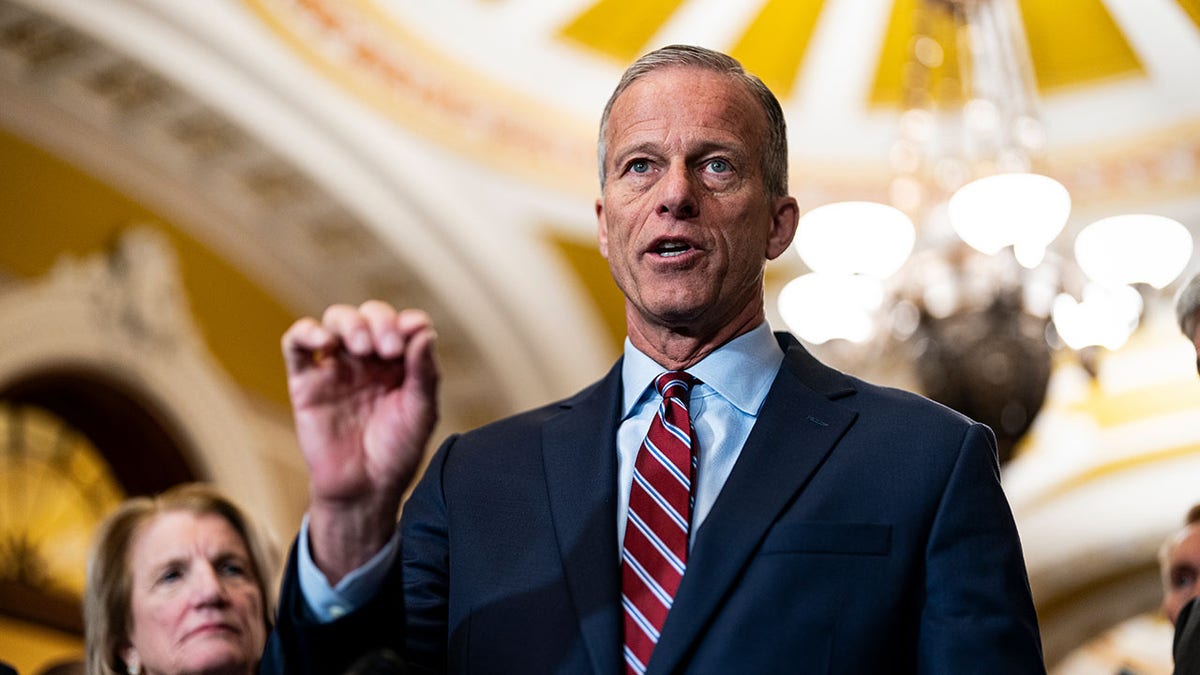
Senate Majority Leader John Thune (Al Drago/Bloomberg via Getty Images)
«Can you characterize the difference in the response from congressional Republicans to President Trump this time around, compared to 2017? They seemed a little skeptical of him in 2017. That’s not the case now,» I observed.
«We all watched what happened in November and the mandate he got from the American people. It was clear. It was decisive,» said Thune. «A lot of us who served with him in the last term also saw the effects and the results of a lot of the decisions that he made with respect to policy. And they were the right ones. And in the end, he was proven right when it came to the economy, the border and national security.»
The point is that Trump enjoys a very different Congress compared to the one he tangled with in 2017. It’s Trump’s Congress now. GOPers will generally do what he asks. But when it comes to the tax cut and spending package, Trump must ultimately make the decisions on specific items he wants in the legislation. The question is whether the president will eventually rule things in or out. Trump’s Congress will respond to that.
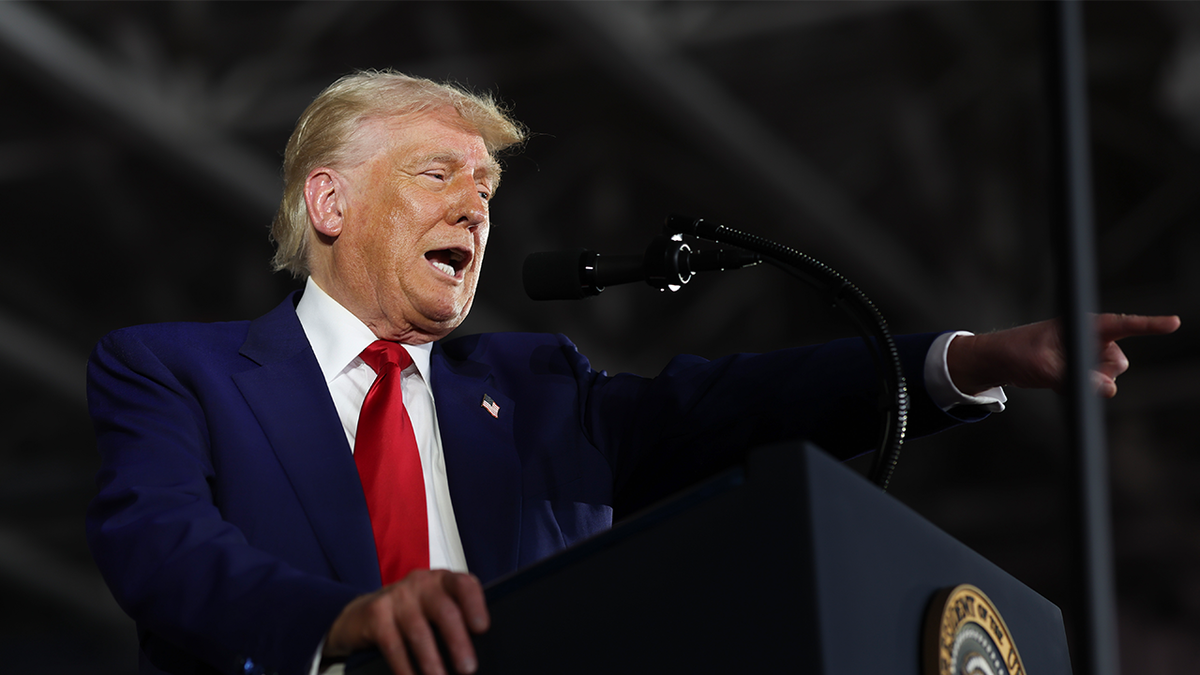
President Donald Trump delivers remarks at his Michigan rally commemorating the first 100 days of his second term. (Getty Images)
«He has been clear to all of the members that this is critical for him. He wants his one big, beautiful bill,» said House Republican Conference Chairwoman Lisa McClain, R-Mich., on Fox. «I wouldn’t want be the one that stands in the way of the president on his agenda.»
But this won’t be easy. Expect a challenging few months.
Kennedy may be right. This is one for alcohol. Not coffee. Grab a dram of the Glenlivet and Lagavulin. Shelve the Starbucks and Nescafe.
CLICK HERE TO GET THE FOX NEWS APP
That is, unless the tariffs spiked the price of liquor and coffee too much.
If that’s the case, just drink water.
Congress,House Of Representatives,Senate,Politics
INTERNACIONAL
EEUU afirmó que la vía diplomática con Irán sigue abierta y que los bombardeos no excluyen un posible acuerdo futuro

La Casa Blanca afirmó este jueves que mantiene abierta la comunicación con Irán y que la relación bilateral continúa en “una vía diplomática”, en medio de tensiones provocadas por recientes bombardeos del ejército estadounidense contra instalaciones nucleares iraníes el pasado fin de semana. Así lo expresó la portavoz Karoline Leavitt durante una rueda de prensa, al referirse a los intentos de Washington de alcanzar acuerdos tras la ofensiva militar.
“El presidente Donald Trump quiere la paz, siempre la ha querido, y ahora mismo estamos en una vía diplomática con Irán. El presidente y su equipo, en particular el enviado especial para Oriente Medio, Steve Witkoff, siguen en comunicación con los iraníes”, afirmó Leavitt frente a periodistas.
El ataque del sábado por la noche tuvo como objetivo las plantas de enriquecimiento de uranio en Isfahan, Natanz y Fordow, según detalló la portavoz, quien subrayó que aunque existe disposición para dialogar, aún es temprano para definir una agenda concreta de contactos con Teherán.
Frente a las declaraciones del presidente estadounidense sobre eventuales acercamientos la próxima semana y la posibilidad de que un acuerdo ya no sea imprescindible tras los daños infligidos al programa atómico de Irán, Leavitt indicó que “acaban de realizar este ataque” y pidió paciencia antes de divulgar plazos oficiales.
Por su parte, el ministro de Asuntos Exteriores del régimen iraní, Abbas Araghchi, negó firmemente las especulaciones de que Irán se dispone a reanudar las negociaciones nucleares con Estados Unidos.

“Algunas especulaciones sobre la reanudación de las negociaciones no deben tomarse en serio”, dijo Araghchi en la televisión estatal. “Quiero dejar claro que no se ha llegado a ningún acuerdo, arreglo o conversación para iniciar nuevas negociaciones. Todavía no se ha establecido ningún plan para iniciar negociaciones”.
“No se ha llegado a ningún acuerdo o arreglo para reanudar las negociaciones. No se ha hecho ninguna promesa ni se ha mantenido ninguna discusión al respecto”, declaró Araghchi al canal estatal de noticias iraní IRINN.
“Hemos tenido una experiencia engorrosa con los estadounidenses: que traicionaron las negociaciones en mitad del proceso. Esta experiencia afectará sin duda a nuestras decisiones futuras. Pero esa decisión se tomará en última instancia en función del bienestar del pueblo iraní, no de las emociones ni de ninguna consideración superficial o temporal”, añadió.
Leavitt también informó que ha mantenido conversación “extensa” con Steve Witkoff y aseguró que la diplomacia estadounidense se coordina no solo con las autoridades iraníes, sino también con intermediarios claves como Qatar. Describió a la administración qatarí como un “aliado y socio increíble durante todo este proceso” y recordó que el emirato ha desempeñado un rol central como mediador, junto con Estados Unidos, entre Irán e Israel para propiciar el diálogo y promover un alto el fuego alcanzado el lunes.
Washington mantiene contacto constante con aliados en la región del Golfo Pérsico y el mundo árabe, en línea con los esfuerzos por consolidar “un acuerdo con Irán sobre la alianza con el Estado de Israel”, explicó Leavitt. Aseguró que la relación entre Washington y Tel Aviv “nunca ha sido tan fuerte” y resaltó la expectativa de que más Estados árabes se sumen a los Acuerdos de Abraham, iniciativas de normalización de relaciones diplomáticas con Israel ya adoptadas por Emiratos Árabes Unidos, Sudán, Baréin y Marruecos.

Por otra parte, la portavoz de la Casa Blanca también criticó al líder supremo iraní, el ayatollah Ali Khamenei, porque consideró que ejecuta una estrategia para “salvar las apariencias”, tras sus declaraciones públicas en las que minimizó el impacto de los bombardeos estadounidenses sobre las instalaciones nucleares. “Vimos el video del ayatollah, y cuando se tiene un régimen totalitario, hay que salvar las apariencias”, afirmó Leavitt en referencia a la postura del líder iraní, quien sostuvo que el presidente Trump “exageró” el daño logrado por la ofensiva militar.
El gobierno estadounidense sostiene que, pese a la escalada militar, continúa priorizando el entendimiento diplomático con Teherán y sus aliados regionales, considerando la persistente inestabilidad en el Medio Oriente y la búsqueda de nuevas fórmulas de cooperación.
(Con información de AFP y EFE)
North America,Government / Politics,Washington
INTERNACIONAL
FBI investigating Iran strike leaker, Leavitt says: ‘They should be held accountable’
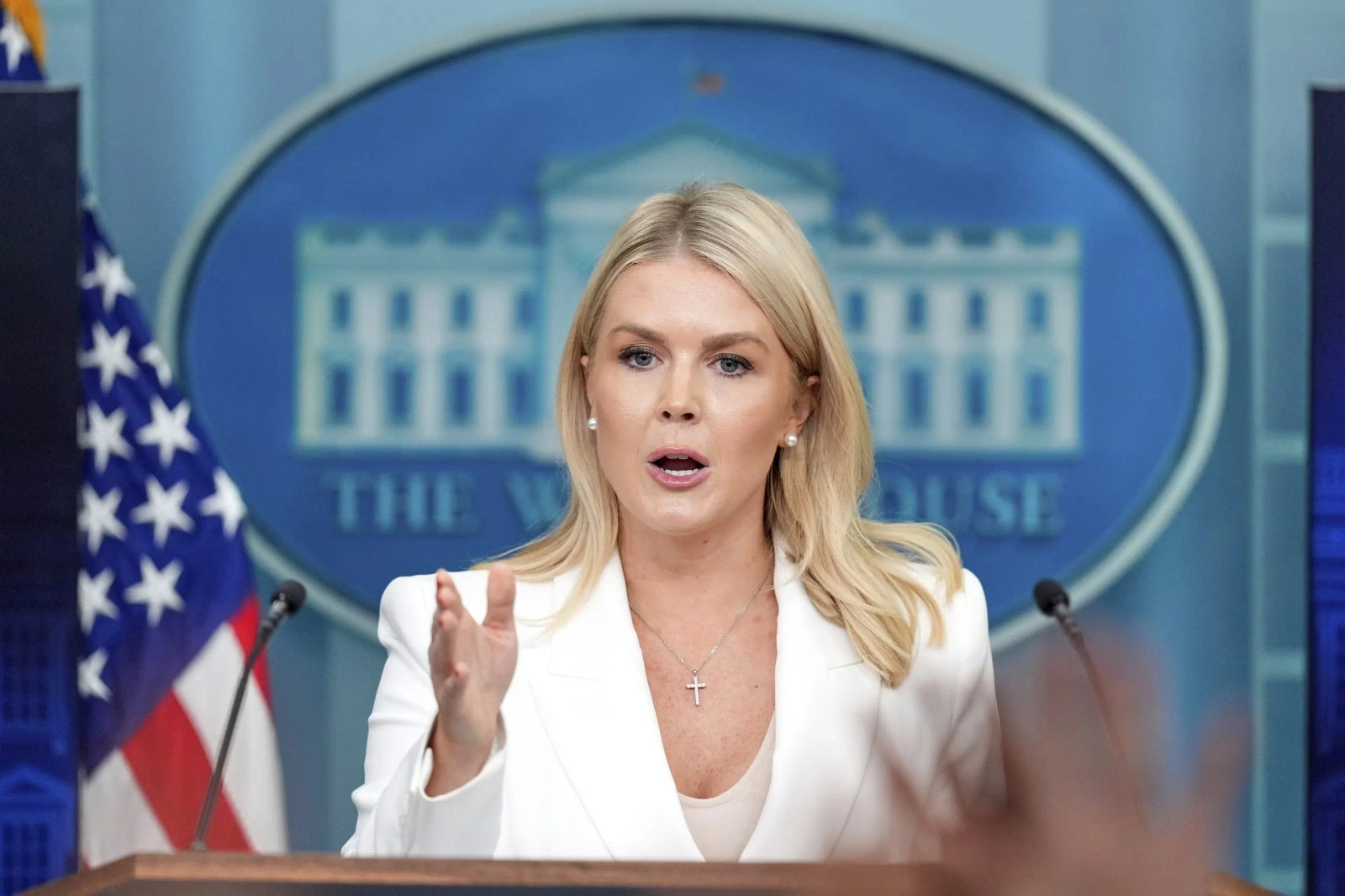
NEWYou can now listen to Fox News articles!
Those who leaked a preliminary assessment — rejected by the White House — on the U.S. strikes on Iranian nuclear facilities will face justice for sharing the document, according to White House Press Secretary Karoline Leavitt.
President Donald Trump and multiple leaders are saying that the strikes destroyed three Iranian nuclear sites.
A leaked report from the Defense Intelligence Agency, published by CNN and the New York Times, cast doubt on that though, saying that the strikes only set back Iran’s nuclear program by several months. CNN first reported the assessment’s findings, citing seven people who were briefed on the report. The outlet reported the findings were based on a battle damage assessment from U.S. Central Command.
Leavitt pushed back on the early assessment’s credibility, claiming the report was «flat-out wrong.»
«Everyone knows what happens when you drop 14 30,000-pound bombs perfectly on their targets: total obliteration,» Leavitt said in a Tuesday statement.
Secretary of Defense Pete Hegseth said Wednesday that the FBI is conducting an investigation to get to the bottom of the matter and who shared the document with the media.
TRUMP SLAMS RUSSIA’S CASUAL THREAT TO ARM IRAN WITH NUCLEAR WEAPONS: ‘THAT’S WHY PUTIN’S THE BOSS’
White House Press Secretary Karoline Leavitt speaks during a press briefing at the White House in Washington, Jun. 26, 2025. (Mark Schiefelbein/The Associated Press)
Additionally, Leavitt told reporters that leaking classified information is a criminal offense and that those who fail to follow the law «need to be held accountable for that crime.»
«This administration wants to ensure that classified intelligence is not ending up in irresponsible hands, and that people who have the privilege of viewing this top secret classified information are being responsible with it,» Leavitt told reporters Thursday.
«Clearly, someone who had their hands on this and it was a very few people, very few number of people in our government who saw this report,» Leavitt said. «That person was irresponsible with it. And we need to get to the bottom of it. And we need to strengthen that process to protect our national security and protect the American public.»
Meanwhile, the U.S., Israel and Iran’s Foreign Ministry have all said that the three nuclear sites U.S. forces struck have encountered massive damage.
EX-CLINTON OFFICIAL APPLAUDS TRUMP’S ‘COURAGEOUS’ IRAN CALL, DOUBTS HARRIS WOULD’VE HAD THE NERVE
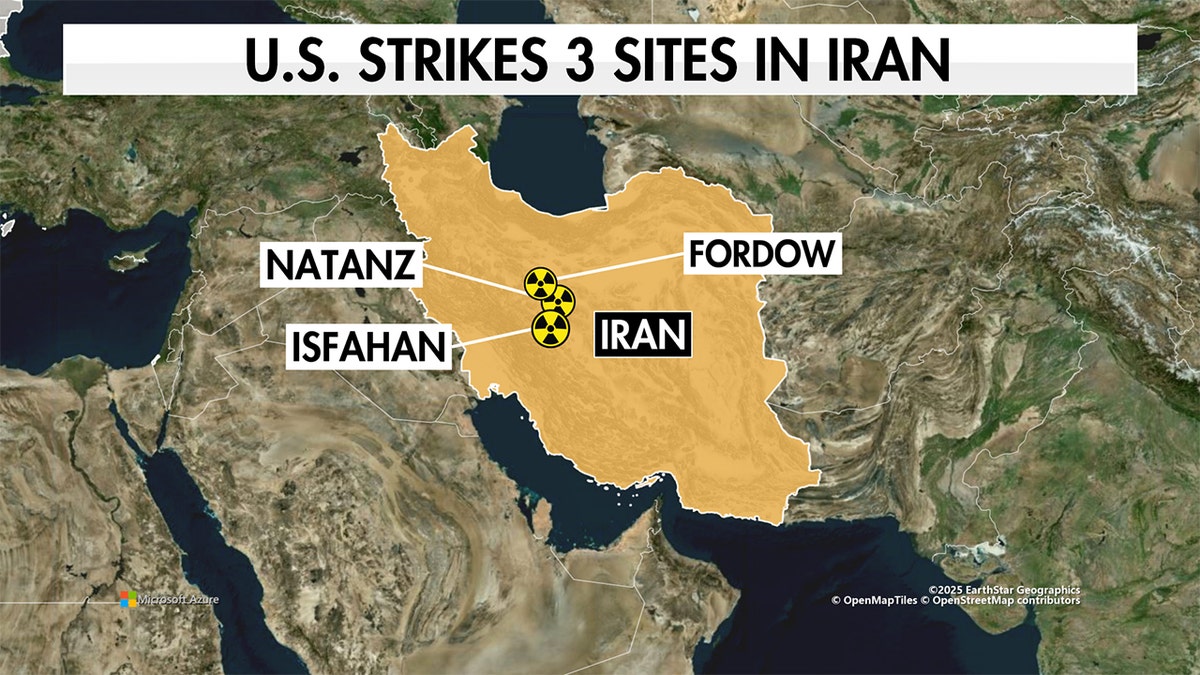
U.S. struck three nuclear sites in Iran Saturday. (Fox News)
Iran’s Foreign Ministry spokesman Ismail Baghaei told Al Jazeera Wednesday that the country’s nuclear facilities were «badly damaged,» and Israel’s Atomic Energy Commission said the U.S. strikes were «devastating.»
On Sunday, Chairman of the Joint Chiefs of Staff Gen. Dan Caine said that initial battle damage assessments suggest «all three sites sustained extremely severe damage and destruction.»
Trump issued a word of caution to Iran Wednesday, should it attempt to repair its nuclear program once more, and said the U.S. wouldn’t hesitate to launch another strike against Iran.
Trump personally called for the firing of one of the reporters who authored the story about the initial assessment, claiming in a Wednesday Truth Social post that the reporter should be «IMMEDIATELY reprimanded, and then thrown out ‘like a dog.’»
RUSSIAN LEADER CLAIMS MULTIPLE COUNTRIES PREPPED TO PROVIDE IRAN NUCLEAR WEAPONS FOLLOWING US STRIKES
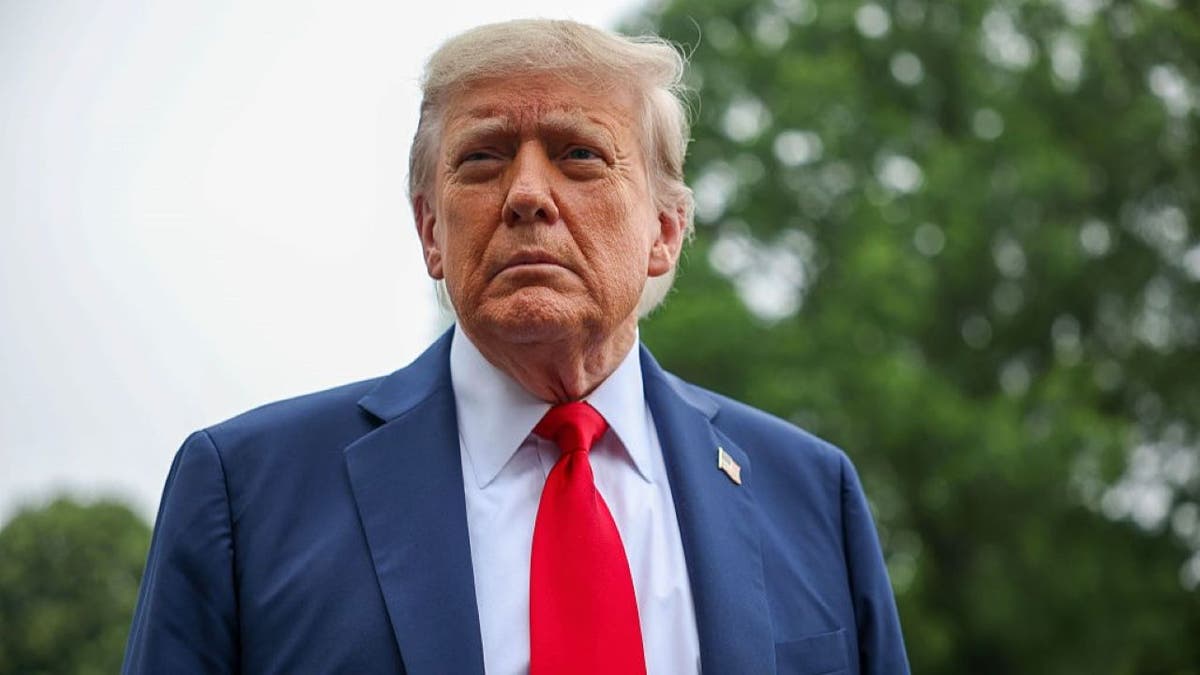
Trump lashes out at Israel and Iran with profanity for breaking ceasefire Tuesday. (Tasos Katopodis/Getty Images)
Even so, CNN came to the defense of the reporter, Natasha Bertrand.
«We stand 100% behind Natasha Bertrand’s journalism and specifically her and her colleagues’ reporting of the early intelligence assessment of the U.S. attack on Iran’s nuclear facilities,» CNN said in a Wednesday statement. «CNN’s reporting made clear that this was an initial finding that could change with additional intelligence. We have extensively covered President Trump’s own deep skepticism about it.»
Fox News’ Brooke Singman contributed to this report.
INTERNACIONAL
En internet y en la vida real, Trump ofrece una ventana a su psique
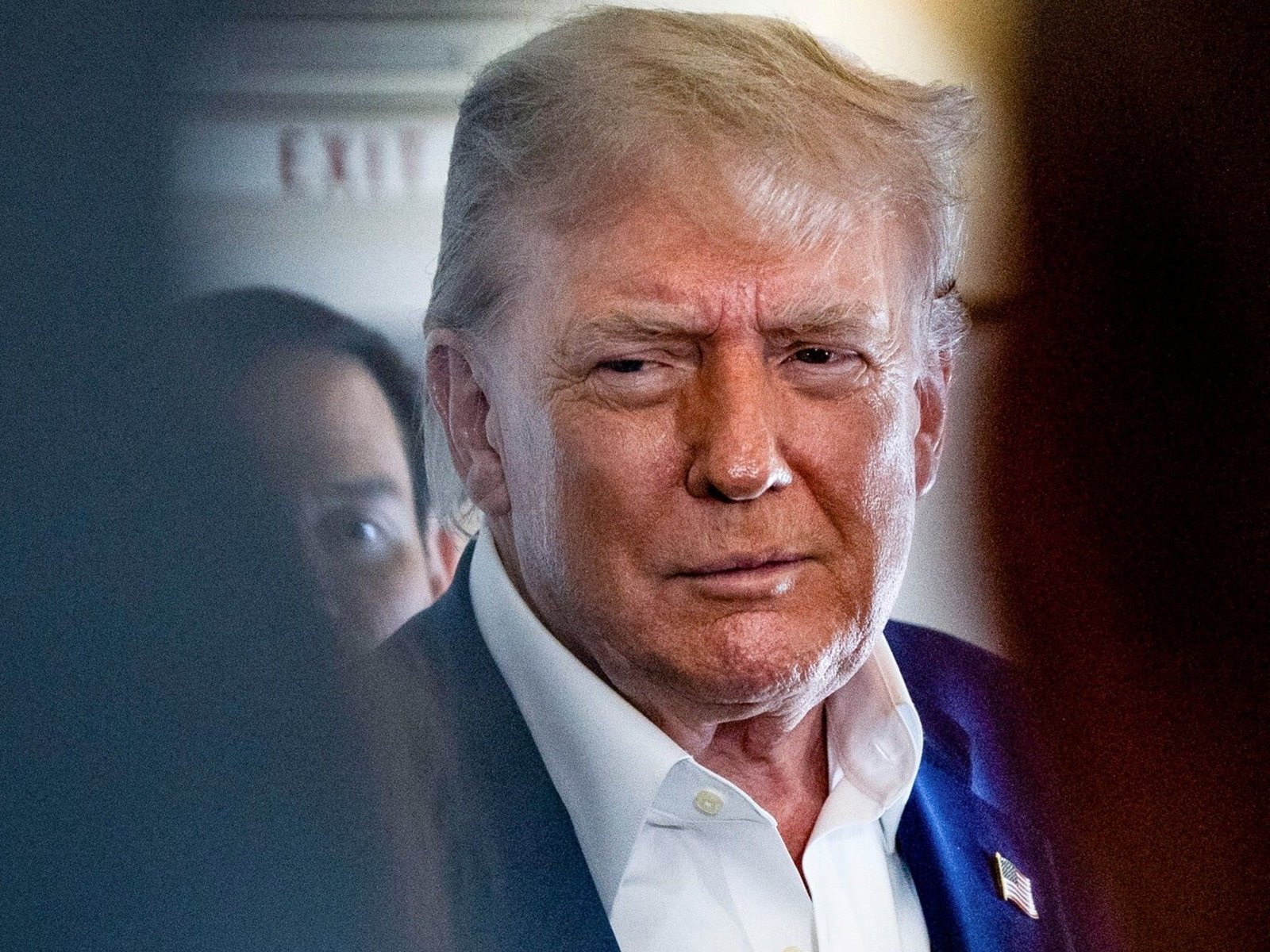
Concreción
Alineamientos
-

 INTERNACIONAL2 días ago
INTERNACIONAL2 días agoLa guerra en Oriente Medio: el Pentágono contradice a Donald Trump y asegura que el bombardeo a Irán solo retrasó su plan nuclear un par de meses
-
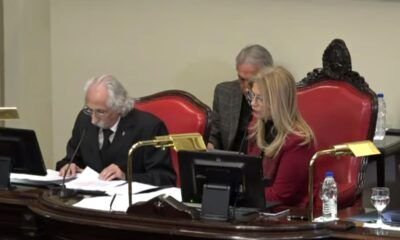
 POLITICA2 días ago
POLITICA2 días agoCon un desempate de Magario, el Senado bonaerense aprobó la reelección indefinida de los legisladores provinciales
-

 POLITICA2 días ago
POLITICA2 días agoRenunció la jueza Julieta Makintach en la antesala de un juicio político en su contra





























